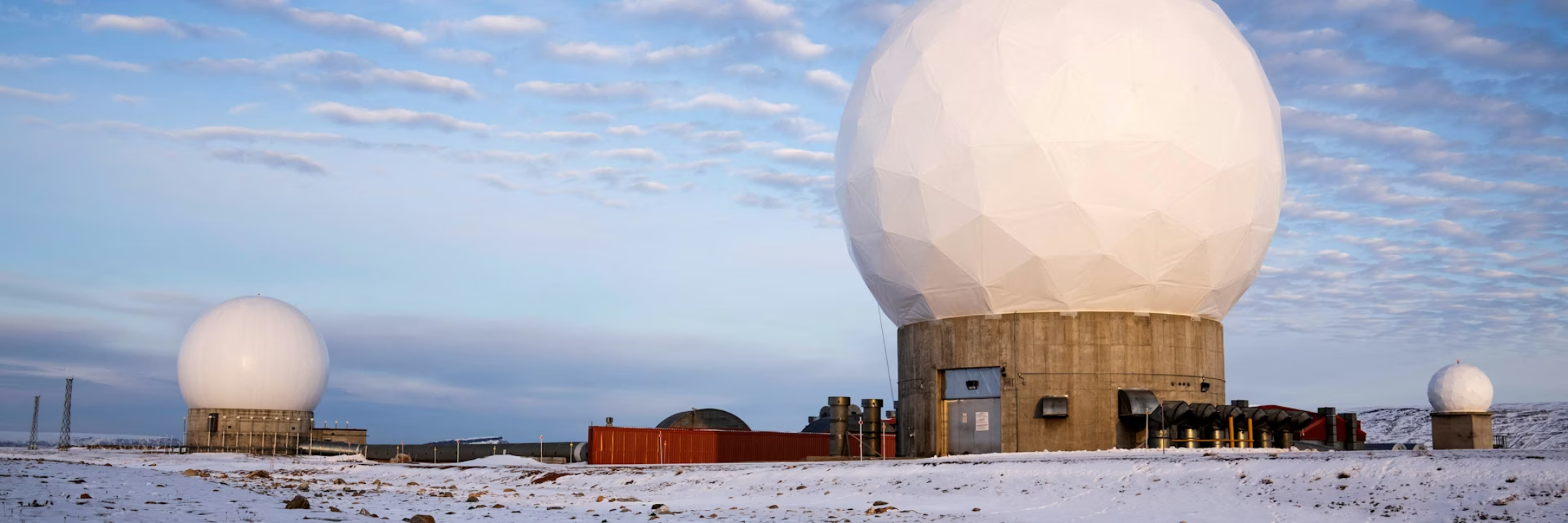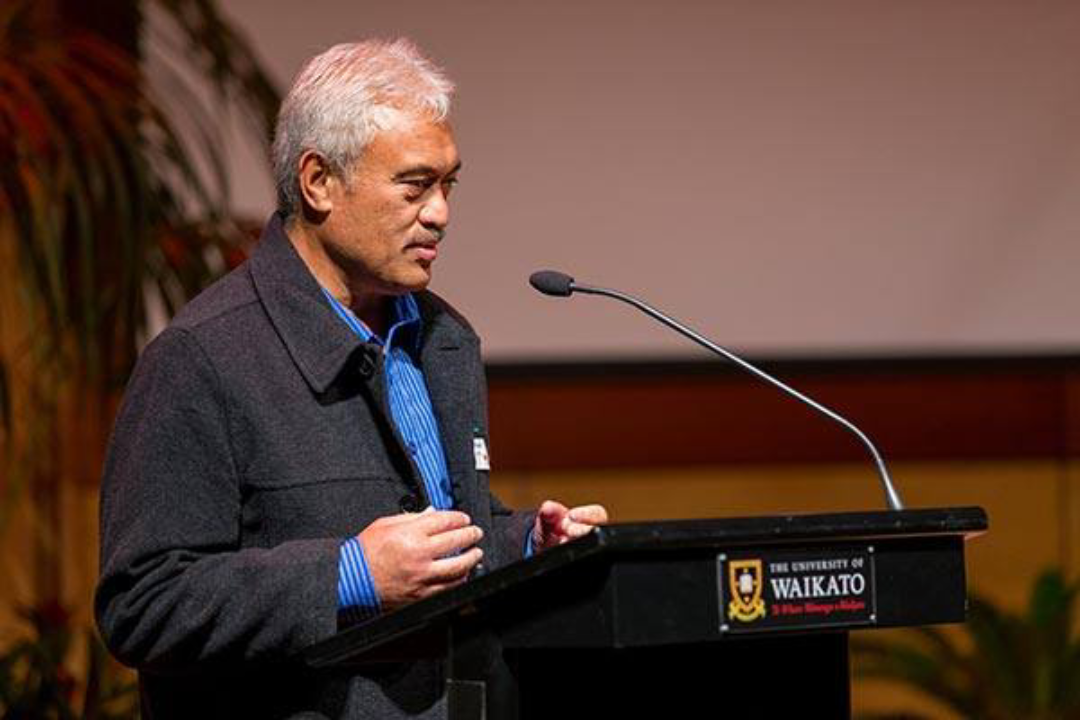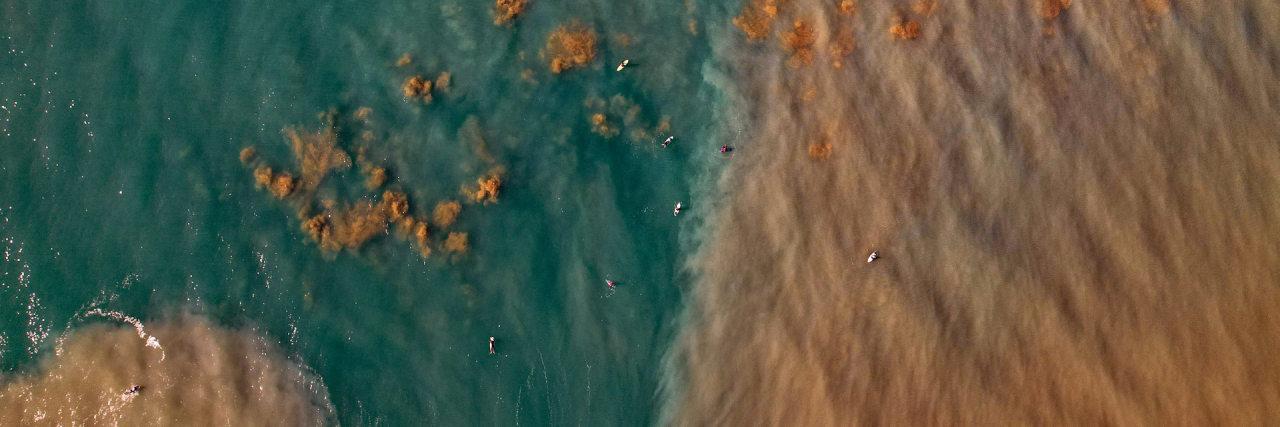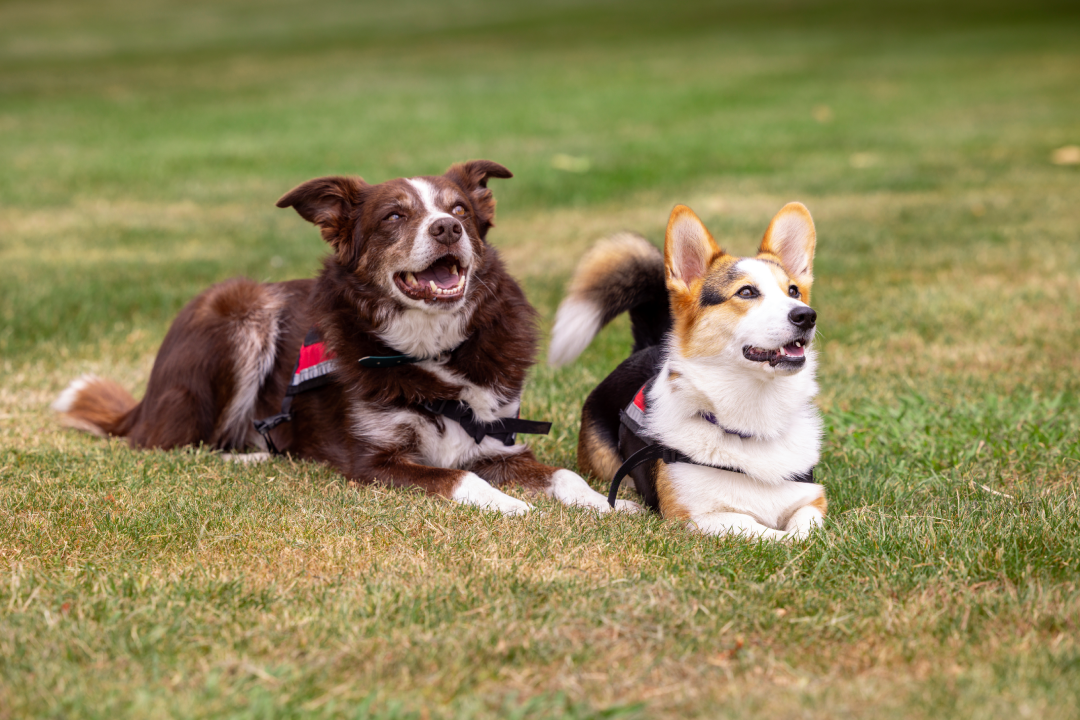The University of Waikato has signed a Memorandum of Understanding (MoU) with AgriSea to formalise their partnership and expand work in sustainable aquaculture and marine-based innovation.
The agreement supports the development of high-value products from native seaweed, environmental restoration efforts and the long-term growth of New Zealand’s seaweed and marine sectors. It also reinforces both organisations’ shared commitment to addressing climate and agricultural challenges through research and regionally focused collaboration.
The MoU was signed by Professor Gary Wilson, Deputy Vice-Chancellor Research at the University of Waikato, and Clare Bradley, Chief Executive of AgriSea.
“The University is focused on increasing its impact partnerships throughout the region. This is a great example of the University working really closely with an impact partner to deliver better outcomes,” said Professor Gary Wilson.
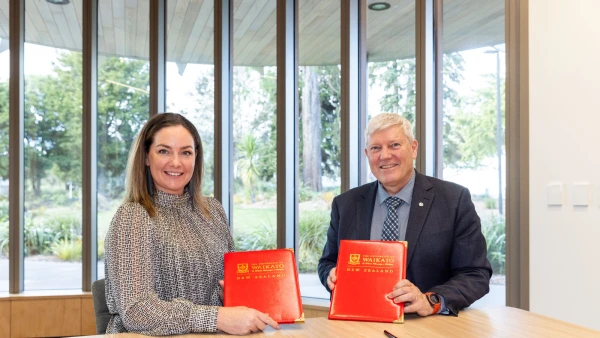
Clare Bradley, Chief Executive of AgriSea with Professor Gary Wilson, Deputy Vice-Chancellor Research at the University of Waikato signing the Memorandum of Understanding
Clare Bradley echoed this sentiment, adding: “We’re proud to formalise this partnership with the University of Waikato. AgriSea has been commercialising seaweed products for nearly 30 years – delivering practical, science-backed solutions to farmers and growers. Together, we’re unlocking new innovation, building robust supply chains, and enhancing the value of native seaweeds to create lasting benefits for our communities, our economy, and the environment.”
The MoU builds on several years of collaboration between AgriSea and the University’s macroalgal technologies team, led by Professor Marie Magnusson. The team was established through the Entrepreneurial Universities initiative, which was a joint investment by the Tertiary Education Commission and the University. It brought together research excellence and commercial capability to support innovation in the marine sector. AgriSea played a key role in this work and was represented on the programme’s industry advisory group by Tane Bradley.
One of the partnership’s key outcomes to date has been a joint project funded through the Ministry for Primary Industries’ Sustainable Food and Fibre Futures fund. The initiative trialled the use of native seaweed to remove excess nutrients from the Waihou River estuary near Thames, while producing algal biomass suitable for use in biostimulants and other commercial applications. Building on the success of this feasibility study, both organisations are now exploring opportunities to scale the work for broader environmental and economic impact.
Further research collaboration is anticipated through the work of Professor Chris Battershill, Director of the University’s Coastal Marine Field Station in Tauranga. His team is exploring the use of marine-derived compounds to help address resistance to herbicides, pesticides and pharmaceuticals, with the goal of developing safer, more targeted alternatives for use in agriculture and biosecurity.
Both AgriSea and the University are committed to working in ways that reflect the values of te ao Māori. The partnership acknowledges AgriSea’s identity as a multigenerational Māori-owned business and places emphasis on respectful collaboration that aligns cultural, community, scientific and commercial priorities.
